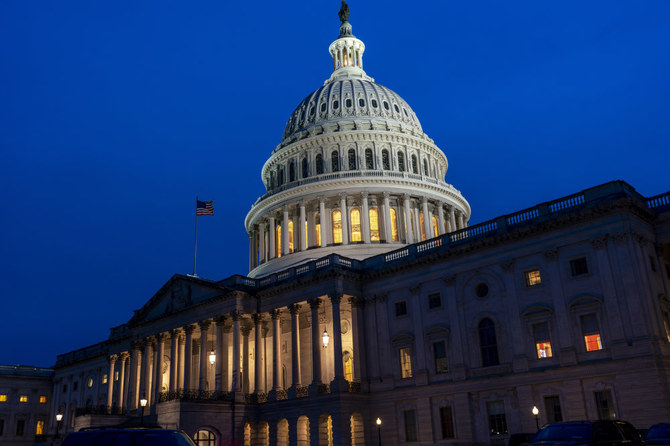
The murder of Lebanese cultural entrepreneur and political activist Lokman Slim this month has led to a resurgence of the kind of demands for accountability and “the truth” that protesters in Beirut called for in 2005 following the assassination of former Prime Minister Rafik Hariri.
The Special Tribunal for Lebanon (STL), which investigated the murder of Hariri, already delivered the truth — ignoring it will only render such future crimes a banality, not only in Lebanon but the entire region.
The recent two-year extension of the mandate of the STL sounds more like a winding down of operations at a time when the intervention of international justice is needed most.
We are all born equal but there is no equality in death; some deaths go unnoticed while others cause shockwaves that change the course of history.
Five people were killed in the Boston Massacre on March 5, 1770, a key incident that helped trigger the American War of Independence. They were declared martyrs in the cause of liberty. In contrast, the 620,000 people killed during the American Civil War were mere statistics.
The sad truth is that some deaths are judged to matter more than others.
In the case of the Boston Massacre, for example, a number of soldiers stood trial for murder and were defended in high-profile cases by future revolutionary John Adams. The trials became an important symbol for the integrity of the rule of law and fairness in determining accountability.
Deaths that matter trigger such processes and leave their mark on later developments in society.
This is why we should not ignore the judgment the STL issued on Aug. 18 last year. The tribunal was established to ensure accountability for murders in Lebanon with an impact on the wider region. Such assassinations, mostly by killers with links to the Iranian agenda, have happened not only in Lebanon but also in Iraq and Yemen.There are three main reasons for the lack of enthusiasm with which the STL judgment was greeted. Firstly, it came barely two weeks after the catastrophic explosion in Beirut’s port that killed more than 200 people, injured more than 6,000 and destroyed a significant part of the city. It is fair to say that the Lebanese people were still reeling from the disaster and not necessarily paying full attention to the judgment.
The Lebanese government should acknowledge its obligation to hand over Ayyash to the STL.
Nadim Shehadi
Lebanon is also going through a tough time generally, with an economic crisis compounded by political chaos, the inability to form a stable government, and a lack of international support while the world is busy trying to deal with the coronavirus (COVID-19) pandemic and its consequences.
Yet the judgment of the STL was an important breakthrough that demonstrated clearly the connection between the murder of Hariri and the political affiliations of Salim Jamil Ayyash, the only person who was convicted “beyond reasonable doubt.”
The result was met with a measure of disappointment in Lebanon but this represents an immense misunderstanding of the meaning of the judgment and of the process that led to it.
It was the culmination of 15 years of intense international cooperation that represented a form of protection for Lebanon. It included four years of lobbying at the UN before the tribunal was set up in 2009. The indictment was issued in 2011 and the trial began in 2014. It included 415 days in court, during which the judges scrutinized 171,000 pages of evidence and heard from 297 witnesses. The judgment itself runs to 2,641 pages, with an authoritative summary of 149 pages.
Why is all of this important if, in the end, we do not have a satisfactory outcome? The answer is simple: The outcome is an enormous amount of facts that were established through the most rigorous process of investigation and trial.
The judges, while unable to issue a more extensive judgment, provided enough evidence in the pages of their ruling to allow us to come to satisfactory conclusions ourselves. The evidence required to satisfy a tribunal is very different from what is needed to satisfy political analysts, investigative journalists, historians and policymakers.
The key to understanding this is that the weakness of the tribunal is at the same time its greatest strength. It is weak in that ultimately it could not name more than one guilty person. Its rules and statutes did not allow it to pass judgment on anyone other than living individuals. This means that deceased people, such as Mostafa Badreddine, who were known to be connected to the killing were not within the tribunal’s mandate, nor were political parties and institutions, governments or militias.
Another weakness is that it had to adhere to a bureaucratic process, with the defense challenging every assumption and conclusion.
But at the same time it is this very weakness that makes its conclusions so strong, and ensures that the facts included in the report are unquestionable and immensely valuable evidence.
The judges highlighted many facts that can help us. For example, their report mentions that Rustum Ghazali, a former head of Syrian intelligence in Lebanon, asked Hariri to double his protection money two days before the assassination. It also states that Ayyash could not have acted alone and was part of a network of at least 10 people. Some could not be named “beyond reasonable doubt,” but it does give us the names of some of them.
The STL is under threat of closure, its budget has been cut and some of its functions, such as outreach, have been shut down. Instead of winding down, all efforts should be made to give international justice a boost and expand its mandate.
The reports should be studied and used to secure further international support in efforts to prevent political assassinations.
Most importantly, the Lebanese government should acknowledge its obligation to hand over Ayyash to the STL. We owe it to future generations and to victims of these crimes to pursue justice and to ensure that their lives matter.
• Nadim Shehadi is the executive director of the LAU Headquarters and Academic Center in New York and an Associate Fellow of Chatham House in London.
Disclaimer: Views expressed by writers in this section are their own and do not necessarily reflect Arab News" point-of-view










